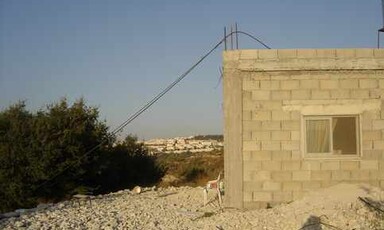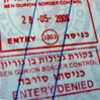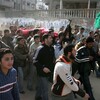
The Village of Al-Wallaja vs. the State of Israel
14 December 2006
The house of Munthir Mahmoud Hamad stood alone. Almost perfectly square in shape and made up of gray cement stone - it stood on a tiny hilltop among rubble - what was likely to have been a previously destroyed home. A makeshift water tank sat on the roof and wires led from the rooftop to a generator nearby. From his house you could see the Jewish settlement of Gilo. All settlements in Israel and the Occupied Territories are easy to point out - houses are obtrusively white in color, perfectly aligned next to one another, and built on a hilltop - like a perfect suburbia and another world. Read more about The Village of Al-Wallaja vs. the State of Israel








